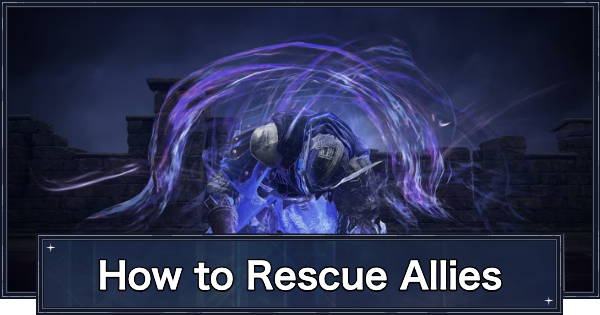Near-death rescue mechanics are crucial in Elden Ring Nightreign. This guide explains how to assist allies in near-death state, manage the near-death gauge, and avoid penalties.
How to Rescue Allies in Near-Death State
Attack Allies in the Near Death State
Allies under the near death state
can be rescued by attacking them to reduce the near death gauge to 0. Whenever an ally is "downed", assess the situation before committing to a rescue.
Lock On to Near Death
You can lock on to allies who are in near death. This makes it easier to land attacks for a rescue, and is especially important for players using ranged and magical attacks who want to perform a rescue from a distance.
Understanding the Near-Death State
Downed
State

The Near Death State is the equivalent to getting downed
in other games. Nightfarers who have their HP reduced to 0 suffer this state and have their movements and actions restricted until they are rescued.
Eventual Death

If you remain in the near death state for a prolonged time during the daytime, you will eventually suffer a true death
, wherein your level drops by 1 and drop an amount of Runes specific to your level at the location where you died. If the player dies again before retrieving the dropped Runes, the Runes will be permanently lost.
Related Articles
Defeat Conditions
During the Night time, all players no longer suffer a true death
from staying in the near death state. But the expedition will result in a Defeat if all members of the party enter the near death state simultaneously.
The Near Death Gauge Lengthens

Repeatedly entering the near death state increases the near-death gauge, making rescue more difficult. The gauge is displayed in purple and has a maximum of three levels; it does not increase beyond this limit.
Visit Sites of Grace
You can reset the length of the near death gauge by visiting any Sites of Grace, so be sure to visit one before challenging a tough boss or opponent!
Sites of Grace and How to UseElden Ring Nightreign Related Guides

Character
Useful Infromation
 |  |  |
 |  |  |
 |  |  |
 |  |  |
 |  |  |
 |  |  |
 |  |  |
 |  |
Read Before Purchase
 |  |  |
 |  |


